There's always room for improvement.
From the moment pickleball paddles moved away from solid wood, there's been an edge guard around the perimeter of the paddle. There are, of course, exceptions to this when it it comes to "edgeless" designs, but those aside, just about every pickleball paddle has an edge guard, or "bumper", or whatever you may call it.

In essentially all cases, the edge guard is made from what's called an "extrusion". In the extrusion manufacturing process, a molten material is forced--under pressure--through a hole. As the rubber passes through the hole, it cools and hardens into the shape of the hole. If you've ever used the Play-Doh Fun Factory, you're well-versed in the method.
Play-Doh Fun Factory - The Extrusion Process at its Finest! (Image Source)
This is a brilliant process and used for all sorts of things--from structural alloys to pasta, from window cladding to pickleball paddles. Extruding is efficient, reliable, and importantly, inexpensive. It's for these reasons that it became a standard for paddle edge guards.
At Players Pickleball, the word "standard" is often synonymous with "improvable".
Most things can be improved in some way or another, so that's not as profound as it initially sounds, but we did feel there was major room for improvement with the traditional extruded edge guard. The main drawback to an extrusion is that it must be the exact same contour throughout its entire length. You can't have an extrusion thicker in some areas and thinner in others. We wanted an edge guard that was thicker on the corners to improve impact durability but thinner everywhere else to reduce weight where the part was unnecessarily heavy. We also thought the edge guard was simply an area of neglected real estate, ripe for development.
We considered what would happen if we ditched the extruded part for a part made from another common manufacturing technique, "casting". In this method, molten material is forced into a mold (or "mould" for our proper English-speaking friends). As the material cools, it hardens into the shape of the mold. This method allows for much greater flexibility with shapes and designs, but takes more time and is more labor-intensive. If you've ever used a Play-Doh mold, you get the idea.
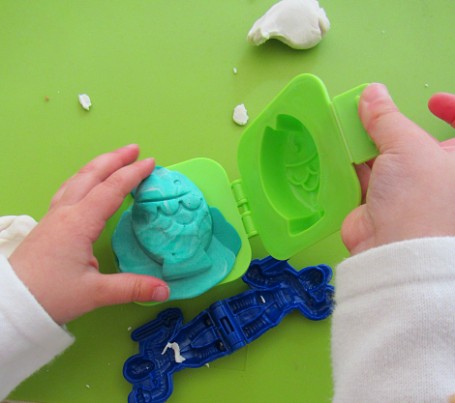
Play-Doh Molds - Fun For Young and Old Alike! (image source)
We knew we could use the same proven materials, just created in a different way. We were aware it would cost more, but if there were benefits to outweigh the cost, it would be worth it. With a stack of benefits already on our minds, we did the math:
| Pros | Cons |
| Could vary the contour of the edge guard, adding bulk where impact protection was needed and removing mass where lightweight characteristics were preferred | Would cost a little more |
| Could add our logo and other branding | |
| Could manipulate the distribution of mass to eliminate the need for "lead tape" weighting for some players | |
| Could make it look really cool! |
Research & Development, along with its sibling "Innovation" are all very dear to our hearts, so without hesitation we went for it.
We're proud to present the result:







Here are the benefits:
- "TMD - Targeted Mass Distribution": We know that moving the mass outward on the paddle increases its moment of inertia (in layman's terms, this means it makes the paddle less likely to twist with an off-center hit).
- Added Impact Durability: The thicker corners make for better protection against the inevitable impact between the paddle and the immovable.
- Weight Reduction: Keeping the edge guard thin away from the corners keeps the overall weight down, meaning mass can be added to critical other areas of the paddle (hint--"Gel-Core"--and more).
- Visual Style: The until-now neglected area of the edge guard can be stylized with logos designs, and more.
But what about the added cost?
Part of the reason we focus so much on selling direct to our customers is so that we can keep our prices low. We felt this innovation was too good not to share with everyone and are carrying the extra costs ourselves, rather than passing them along to you. This means we've accomplished this upgrade without increasing the cost of the paddle. Yes, you read that right. Innovation at no added cost
Innovation at no added cost, available now on the Rogue SI, RSI, and ESI. Only from Players Pickleball.
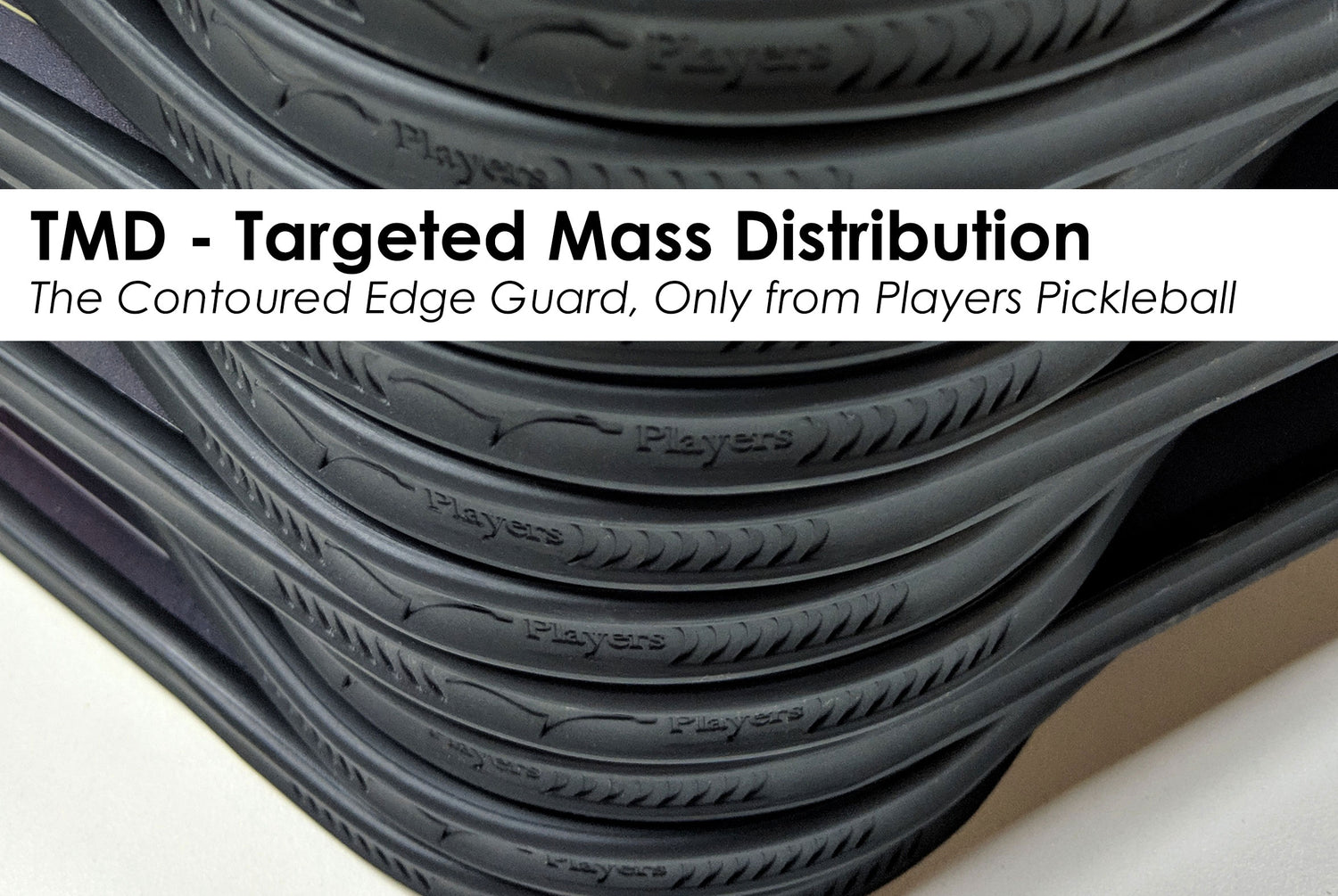
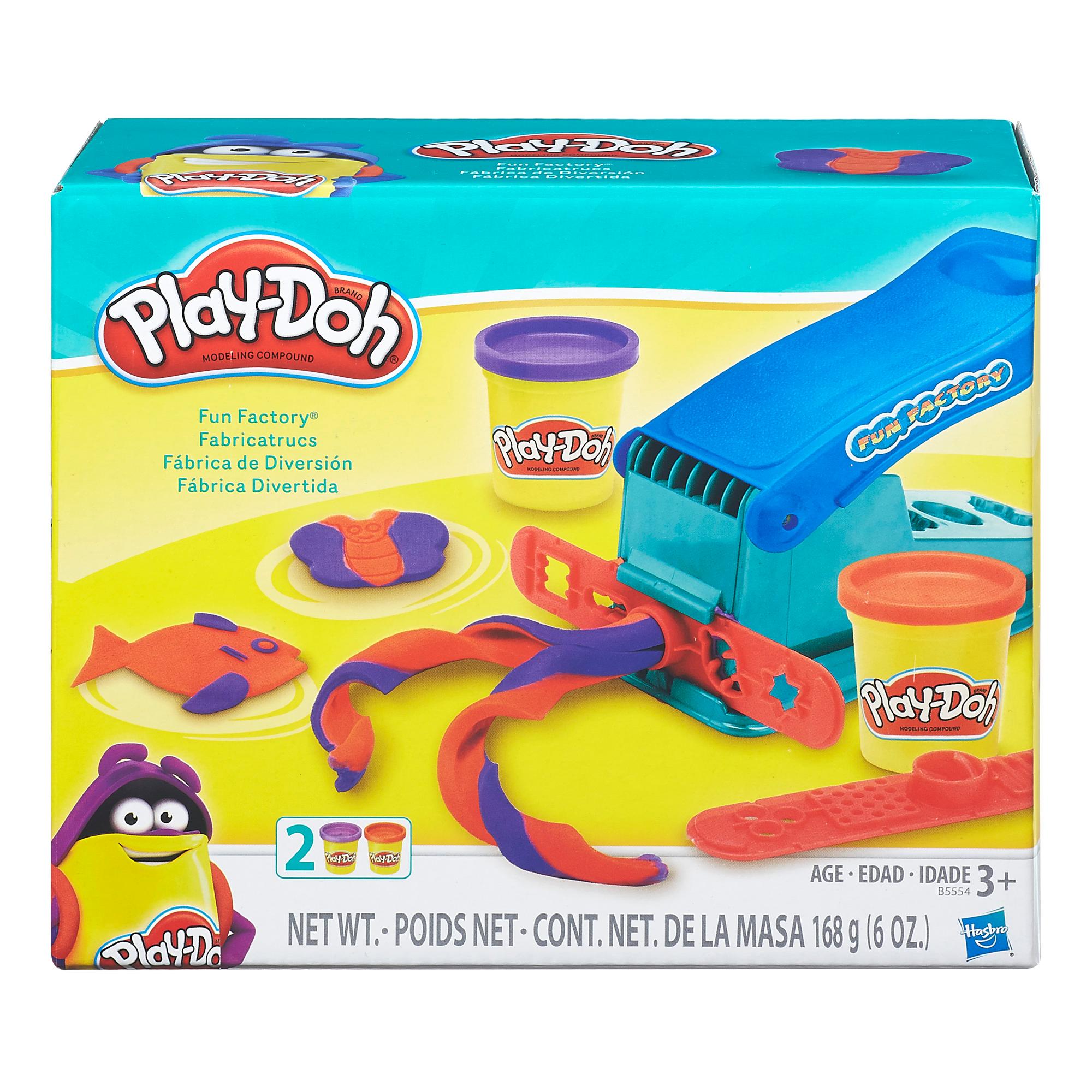
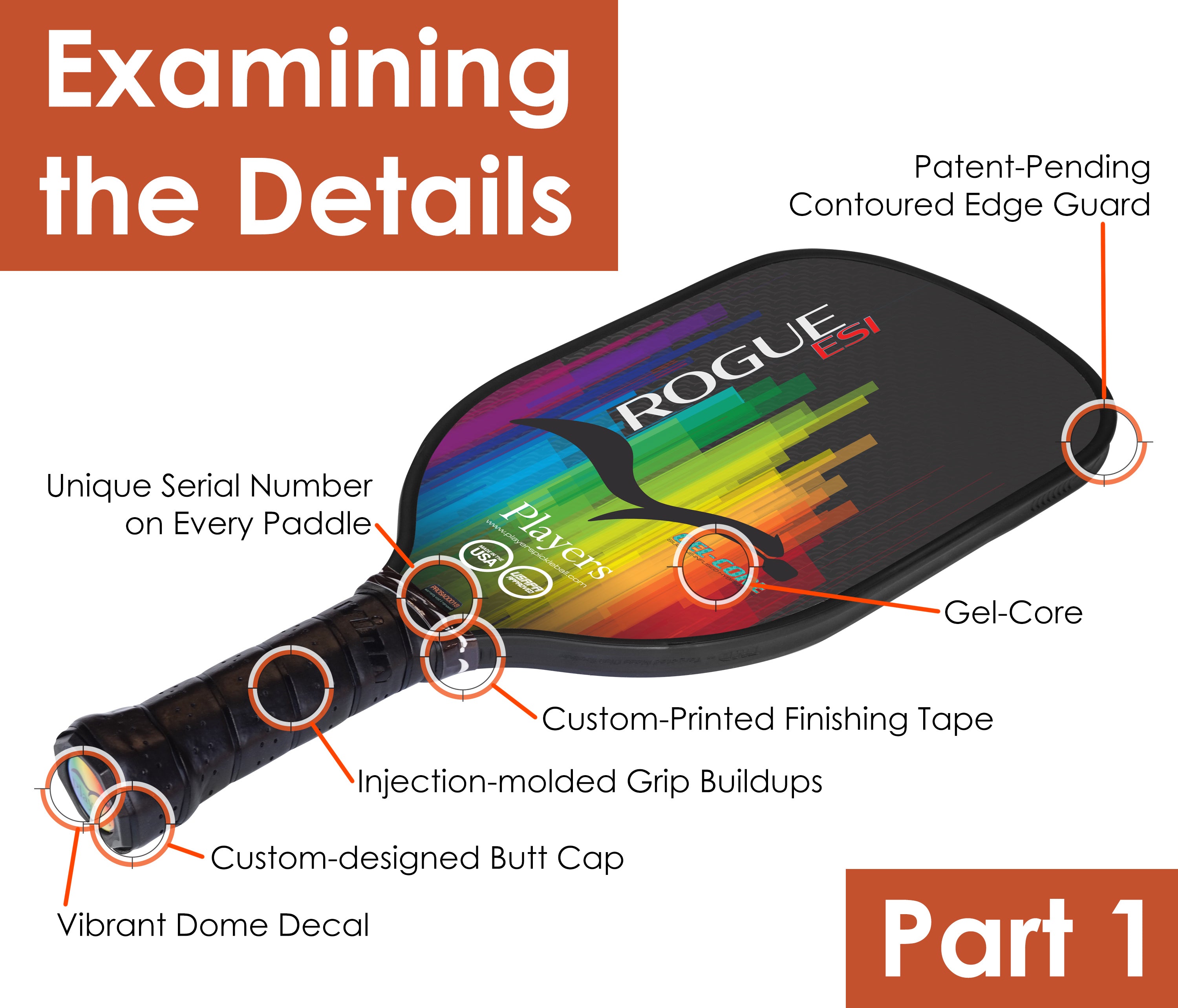
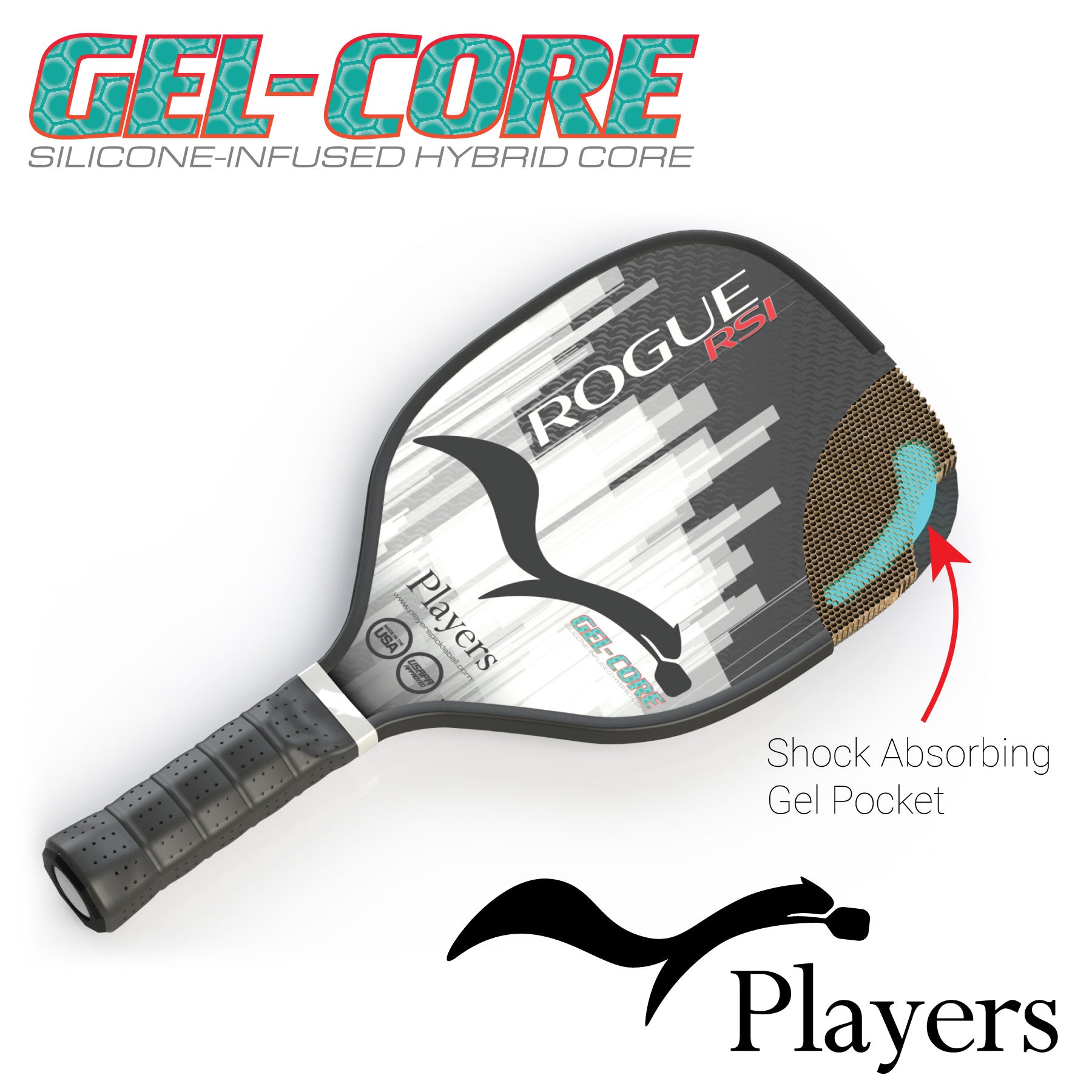
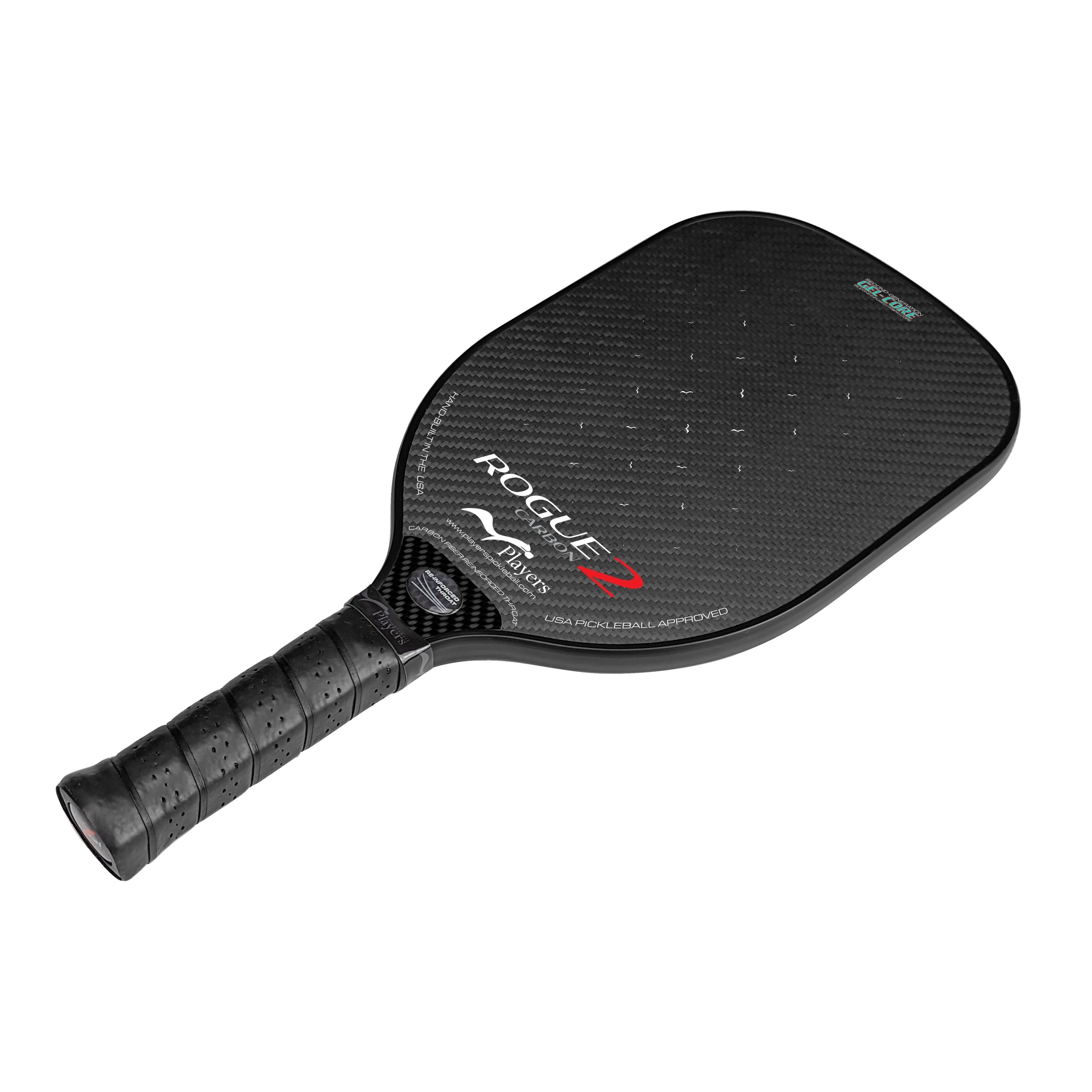
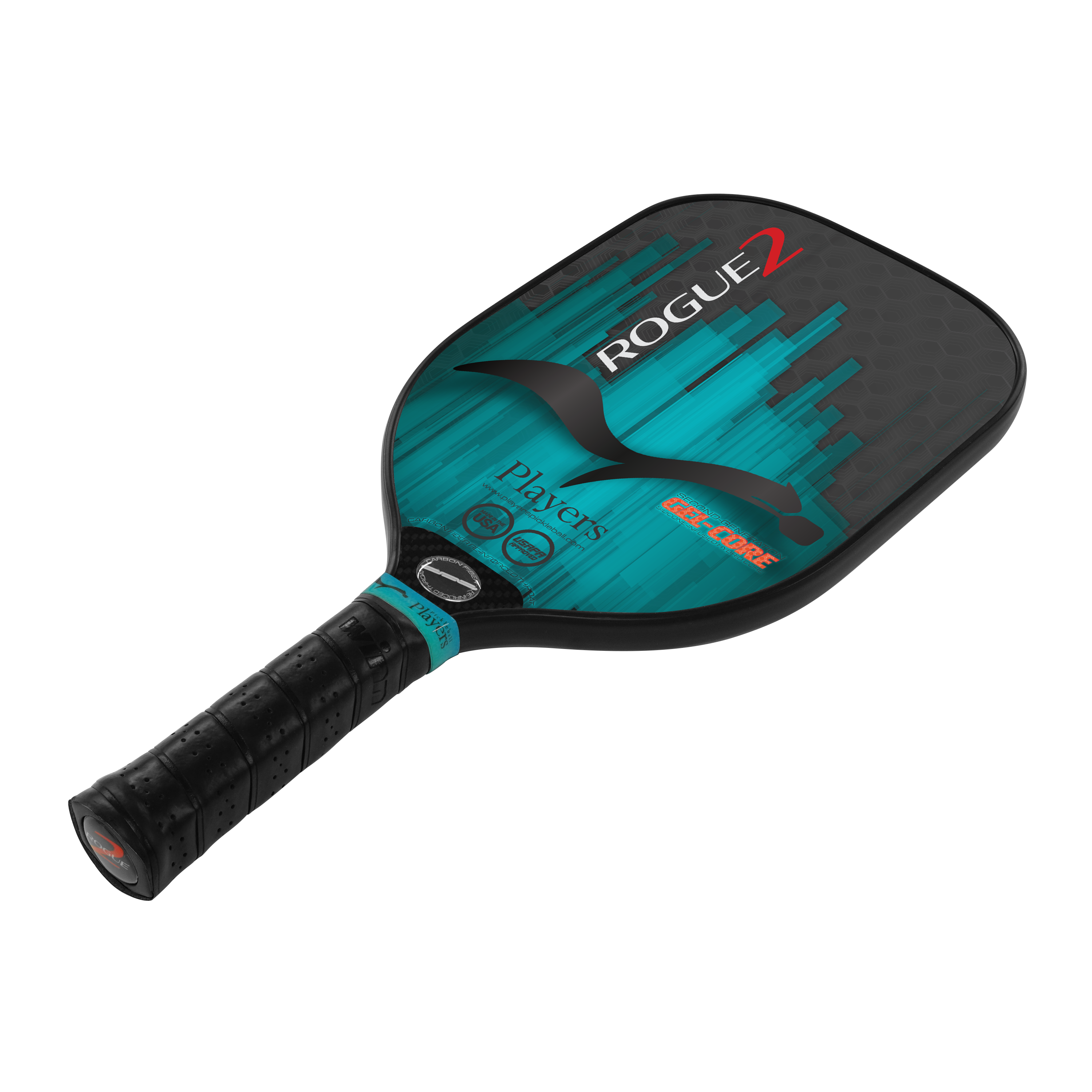
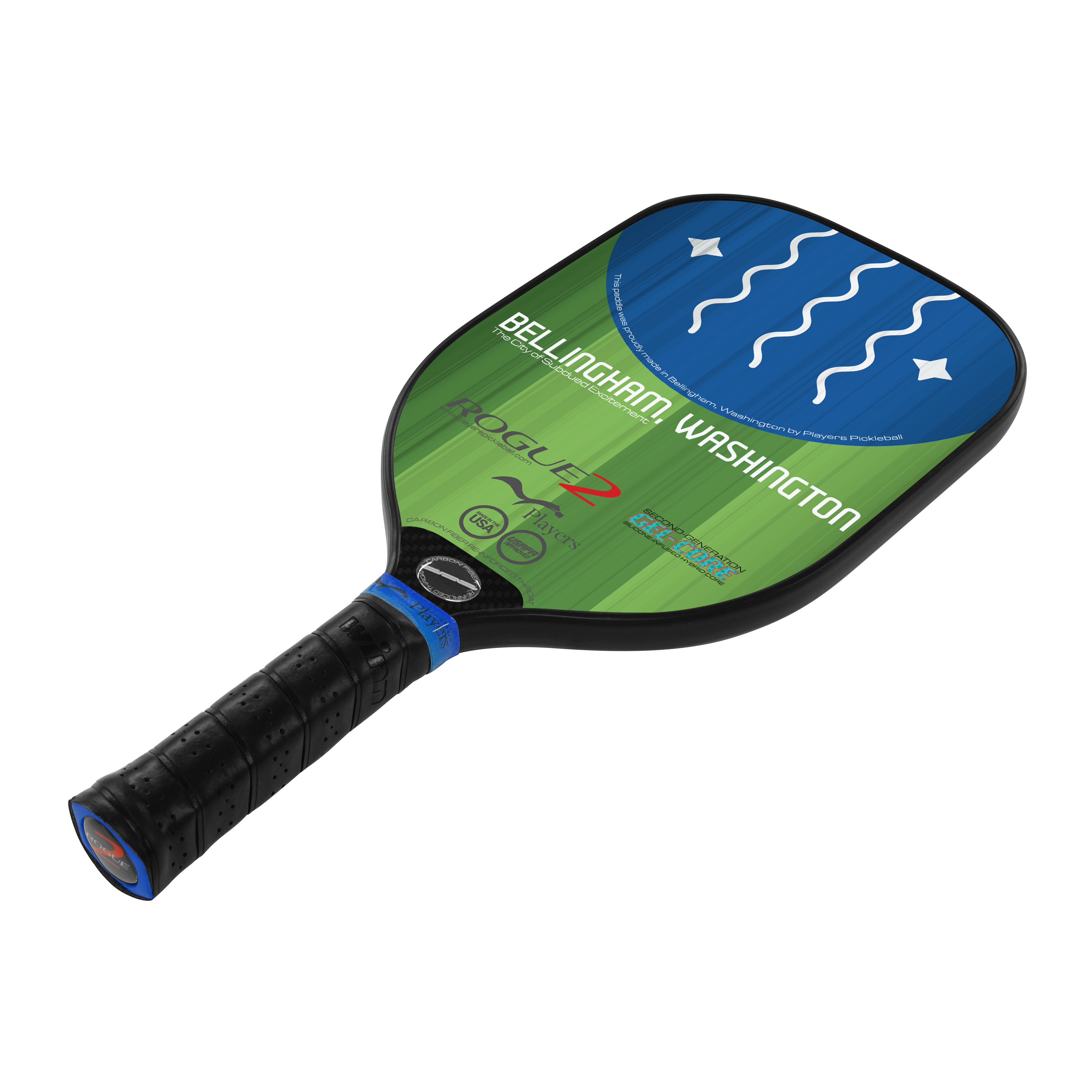
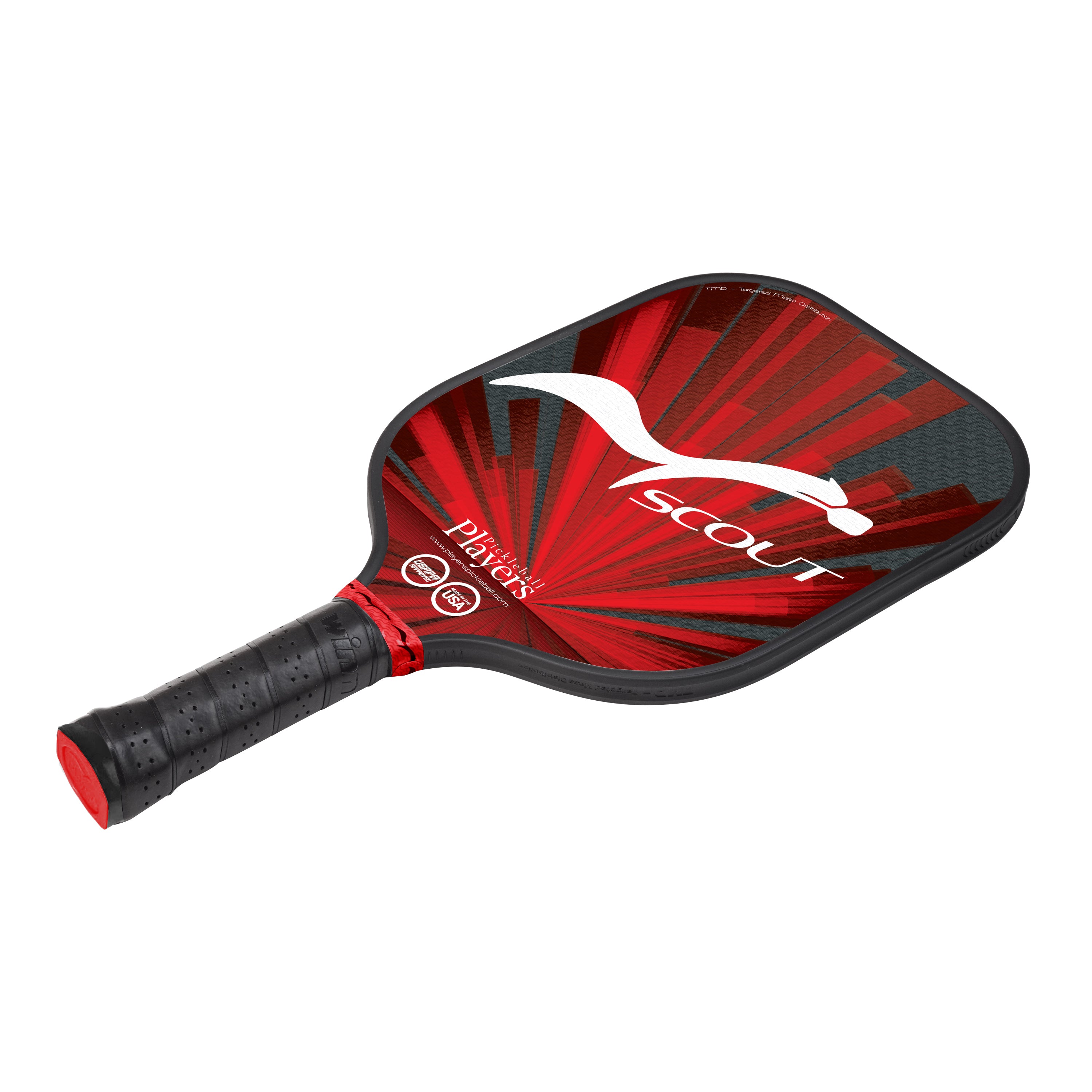
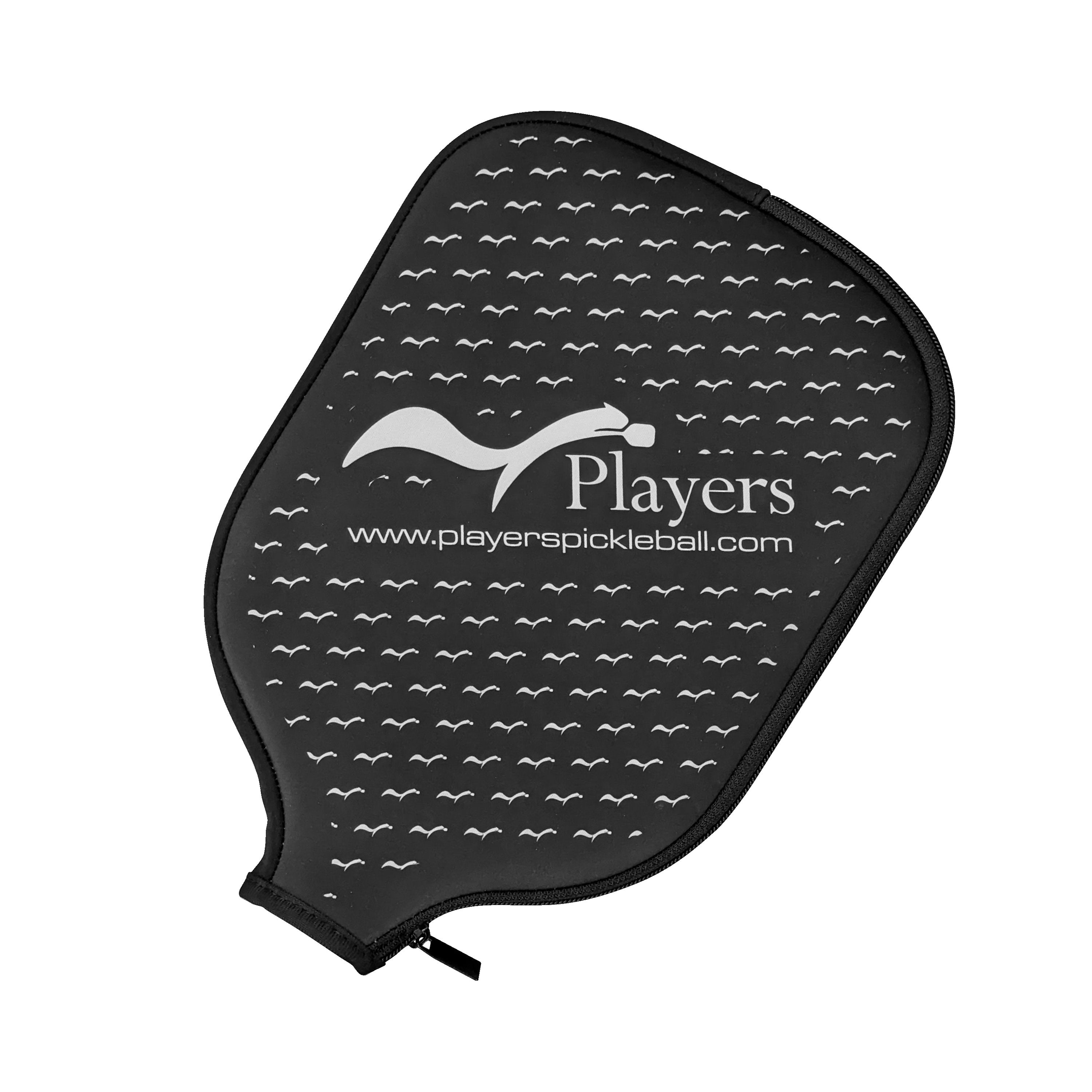
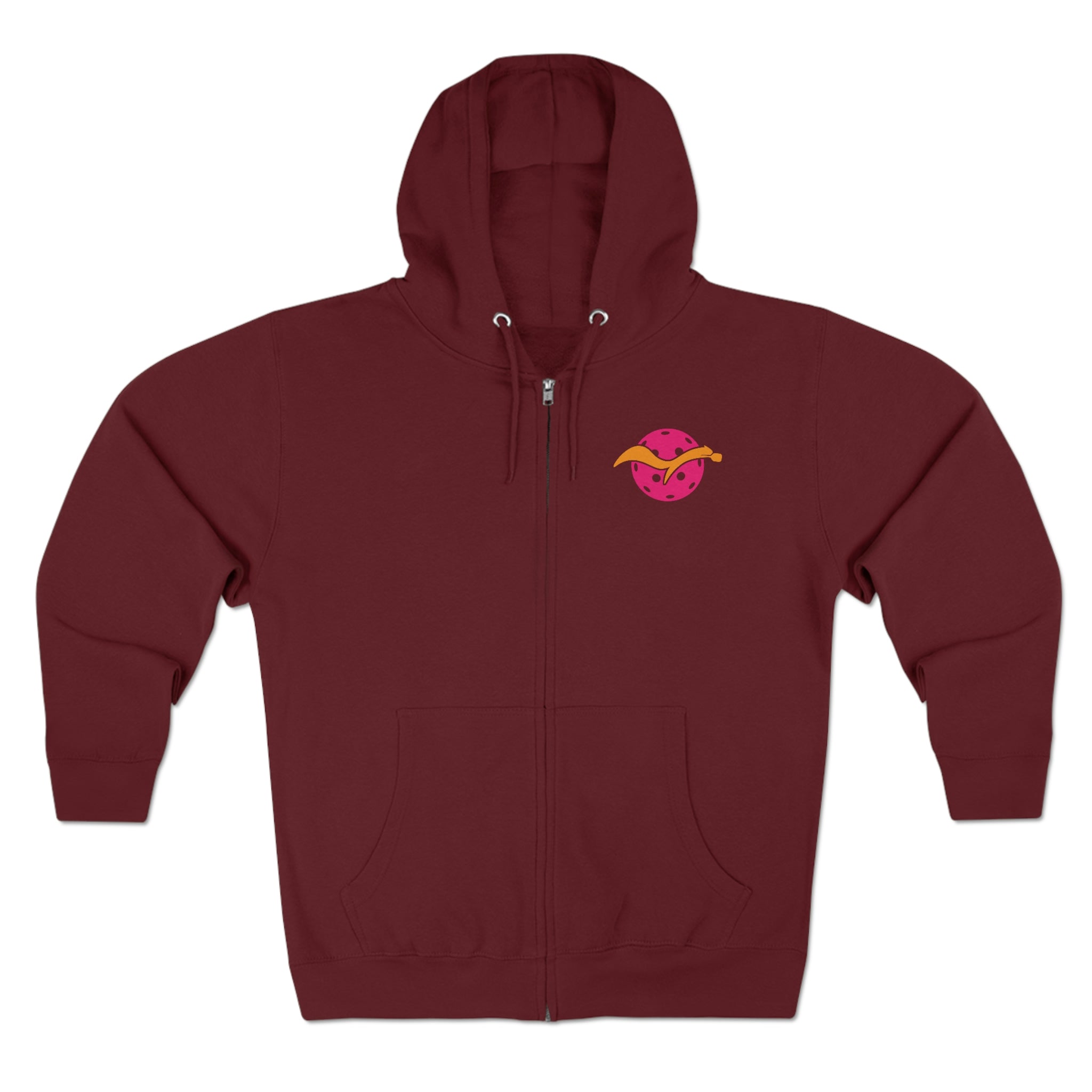
3 comments
Richard Tollefson
Why did you recently abandon this edge design on all paddles?
Why did you recently abandon this edge design on all paddles?
Coach Rick
Interesting to receive the ESI models with the contour edge guard. If I could ever get my RSI back from someone who fell in love with it, I would compare(as it didn’t have the contour…unless I was dreaming when I played with it). It is certainly a distinctive design element and it’s good to know the science behind it! Well done!!!
Interesting to receive the ESI models with the contour edge guard. If I could ever get my RSI back from someone who fell in love with it, I would compare(as it didn’t have the contour…unless I was dreaming when I played with it). It is certainly a distinctive design element and it’s good to know the science behind it! Well done!!!
Rick
I was amazed at the difference in the contoured edge guard. It came on the RSI I bought for my girlfriend last week. The Rogue SI I bought a while ago doesn’t have it so to see them side by side is striking.
I was amazed at the difference in the contoured edge guard. It came on the RSI I bought for my girlfriend last week. The Rogue SI I bought a while ago doesn’t have it so to see them side by side is striking.